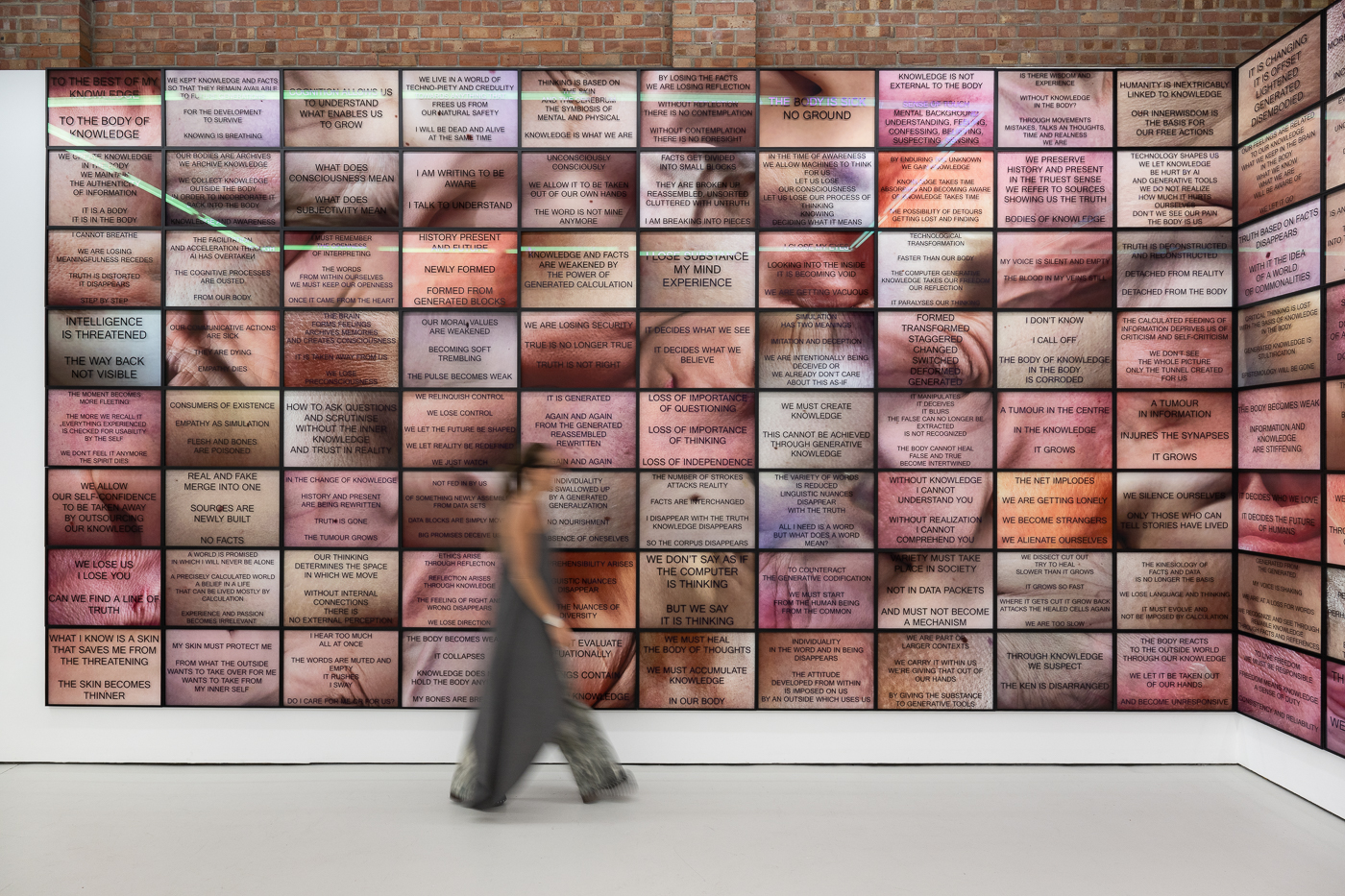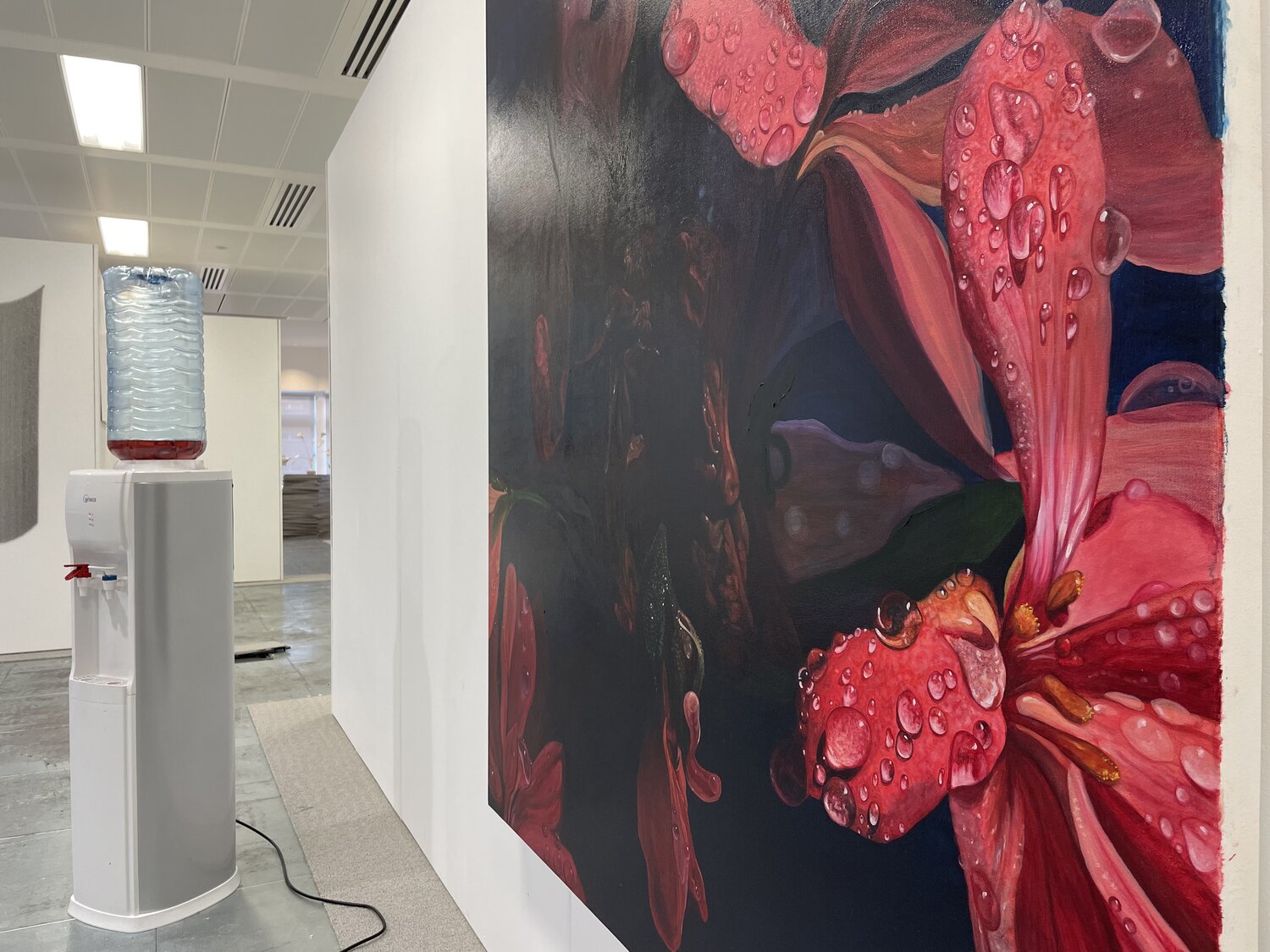Triggered Economics, a group exhibition featuring Kate Bickmore, has been given a 5-star review by Protagonist Magazine writer Daen Palma Huse.
TRIGGERED ECONOMICS OR HOW TO COMMIT TO THE INEVITABLE: An exhibition by Emma Witter and Jonah Pontzer
By Daen Palma Huse
★★★★★
We left behind our lives; our plants died. We shut them and then ourselves inside
I can’t see your face anymore. Everything is flat
I can’t read you through a screen. I’m sorry
about
The house, the bills. All the ways I’ve pulled away and
Pushed it. I’m sorry for the touch we lost. The apocalypse
Broke us, but here, I made you something –
Triggered Economics is an immediate manifestation of what is generally understood as a “developed society” having fallen into disarray. However, the show pinpoints what is and has always been part of the urban environment: disused space. Heightened through the explosive power that Covid-19 has had on slowing down direct human interaction, especially urban spaces have been deserted – some temporarily, some for good. The physical office manifestations of investment capital firms have been left dark, gathering dust, whilst their fast-pasted business is being conducted from the home-office or elsewhere through the digital space. Now it is the time for artists to “go viral:” The site-specific group exhibition Triggered Economics or How to commit to the inevitable carefully curated and tailor-made to its temporary space on Mayfair’s busy Bruton Street, was conceptualised by Emma Witter and Jonah Pontzer. The pair has claimed a firm’s private floor which has, for the past months, disappeared deeper and deeper into its cold metaphorical steel-core sleep – marble-paved, enveloped by faux-slate interior masonry and flanked by paint-on concrete beams. The work of ten artists, some site-specific and commissioned particularly for this exhibition, has revived the space.
The sharp rectangular angles of the reception desk on the right-hand side, and the straight lines of a leather-cushioned waiting bench on the left, visitors need to take the lift, greeted by the universally familiar “ping” upon arrival to one of the upper floors.
The space, with its glass doors and bright lights, has been carefully transformed into a stage. Initially we cannot know for sure which aspects of the space are curated, such as Jonah Pontzer’s “Frankly Unacceptable (Linda),” and which aspects are “natural.” The methodical placement of office plants that have died over the course of the last months, give an indication of the curator’s intent. Office paraphernalia have turned into art objects as come-to-life inanimate bodies. I don’t think I have ever looked at a floor plug-point, or cables sprouting from the wall, the same way – at the same time directing my gaze to artworks such as the cleverly placed smaller-scale works by Aaron Ford.
The ghost of the fictive office worker Linda follows us through the rooms – accompanied by the noise of a photocopier that reproduces Christopher Hartmann’s paintings that occupy a space formerly occupied by a flat-screen. Emma Witter’s work “I don’t fucking work for you” questions the boundaries between everyday object and art – contrasting the colourful explorations of mixed media works around it.
Kate Bickmore’s wonderfully deep-coloured large-scale flower painting “In the Shadows of Infinity” presents itself next to a water-dispenser. The water drops on the leaves of her flowers provide a contrast to the dry office air. Florals are, again, taken up in another work by Emma Witter; the sculptural exploration using bones titled “You Deserved Better.”
“Promise” by Leon Pozniakow juxtaposes a sculpted but life-like blackberry with chain mail – perhaps in this particular display context, this work can be seen as a metaphor between the human body and the office environment, which in its artifice seems often so very disconnected to the human being in all its emotion, rawness, irrationality.


